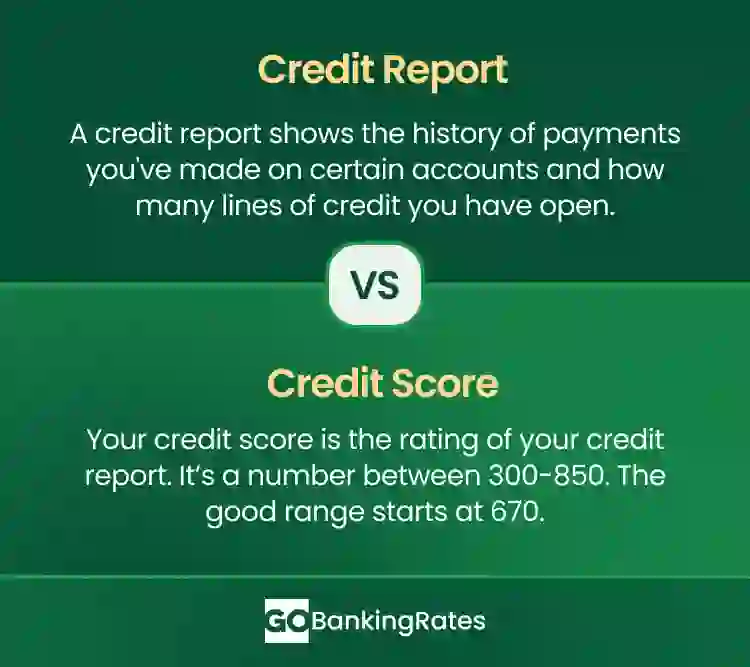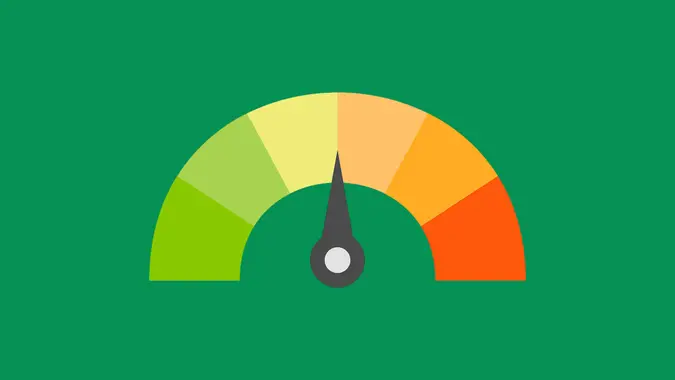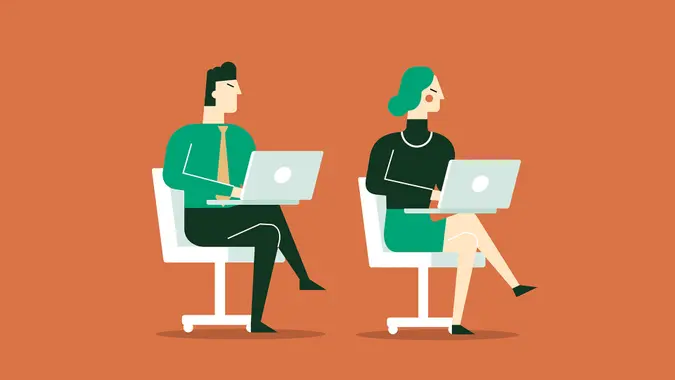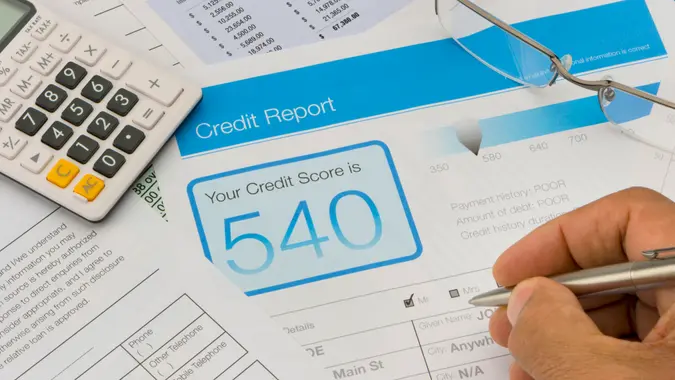Who Can Access My Credit Report?

Commitment to Our Readers
GOBankingRates' editorial team is committed to bringing you unbiased reviews and information. We use data-driven methodologies to evaluate financial products and services - our reviews and ratings are not influenced by advertisers. You can read more about our editorial guidelines and our products and services review methodology.

20 Years
Helping You Live Richer

Reviewed
by Experts

Trusted by
Millions of Readers
Your credit report and score aren’t something just anybody can look at. A person or entity needs to ask your permission before they check it. They must also have a legitimate financial reason to ask for your permission.
The institutions that have access to your credit score or report are designated by the Fair Credit Reporting Act. It’s also important to remember that your credit report and credit score are different from each other.

Who Gets to Access Your Credit Score?
- Lenders: If you apply for a loan or mortgage, the lender will look at your credit score.
- Financial institutions: If you want to open a new credit card or raise your limit on an existing credit card, the credit card company will look at your credit score before approving your request.
This will help them to decide if they should approve your application and how much interest you will have to pay on your line of credit.
Who Gets to Access Your Credit Report?
The following can request a credit check, but they will not see your score:
- Employers: Prospective employers will request to look at your credit report. Your employer might want to see if you have a history of bankruptcies or other signs of difficulty handling your money before making a job offer.
- Landlord and property managers: If you’re applying for a rental home, the landlord might ask to look at your credit report to determine if you will be able to pay your rent.
- Insurance companies: This can be used to set the premium for your car insurance. A good credit report might get you a lower premium.
- Utility companies and other service providers: Your water or electricity provider may check your credit history to see if you have a history of late payments. If you do, they might refuse you service or charge you a deposit.
- Government agencies: If you ask for financial assistance or pay child support, the government can view your credit history.
The Bottom Line
Your credit isn’t something a friend or neighbor can view. It has to be an entity with a legitimate financial reason.
You can (and should) check your own credit. Checking at least once a year can help you make sure there are no fraudulent accounts on your credit.
You can view your credit report for free at AnnualCreditReport.com. Your credit card company or bank might offer free ways to check your credit score. You can also check Equifax, TransUnion or Experian.
FAQ
- Can my employer see my credit score?
- No. However, they might ask to view your credit report.
- Do landlords check my credit score or full report?
- A landlord will look at your credit report to check for missed or late payments.
- Does checking my own credit score lower it?
- No. Only hard pulls can lower your credit score.
- Can family members access my credit score?
- No.
- How can I prevent unauthorized access to my credit report?
- You can freeze your credit by contacting the three major credit reporting agencies: Equifax, TransUnion or Experian.
Our in-house research team and on-site financial experts work together to create content that’s accurate, impartial, and up to date. We fact-check every single statistic, quote and fact using trusted primary resources to make sure the information we provide is correct. You can learn more about GOBankingRates’ processes and standards in our editorial policy.
- CFPB "Who can request to see my credit report?"
- CFPB "What is a credit score?"
- University of Wisconsin-Madison "Credit Report vs Credit Score"
- FTC "Getting Utility Services: Why Your Credit Matters"
- FTC "Fair Credit Reporting Act"
- FDIC "Credit Reports"
- FTC "Free Credit Reports."
 Written by
Written by  Edited by
Edited by 






















